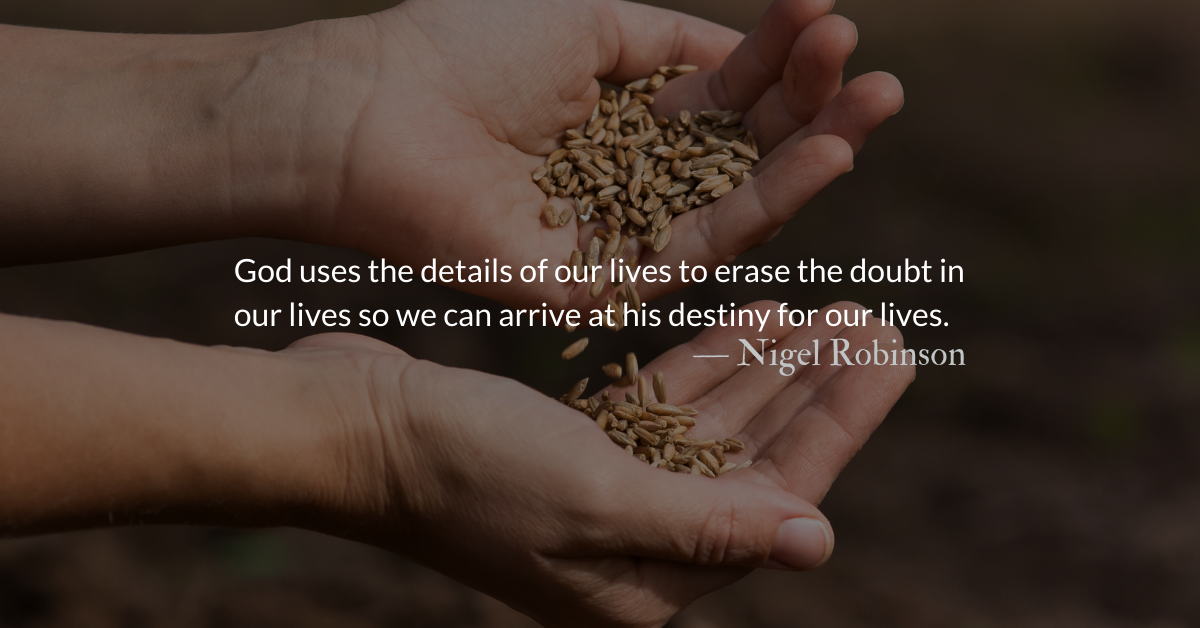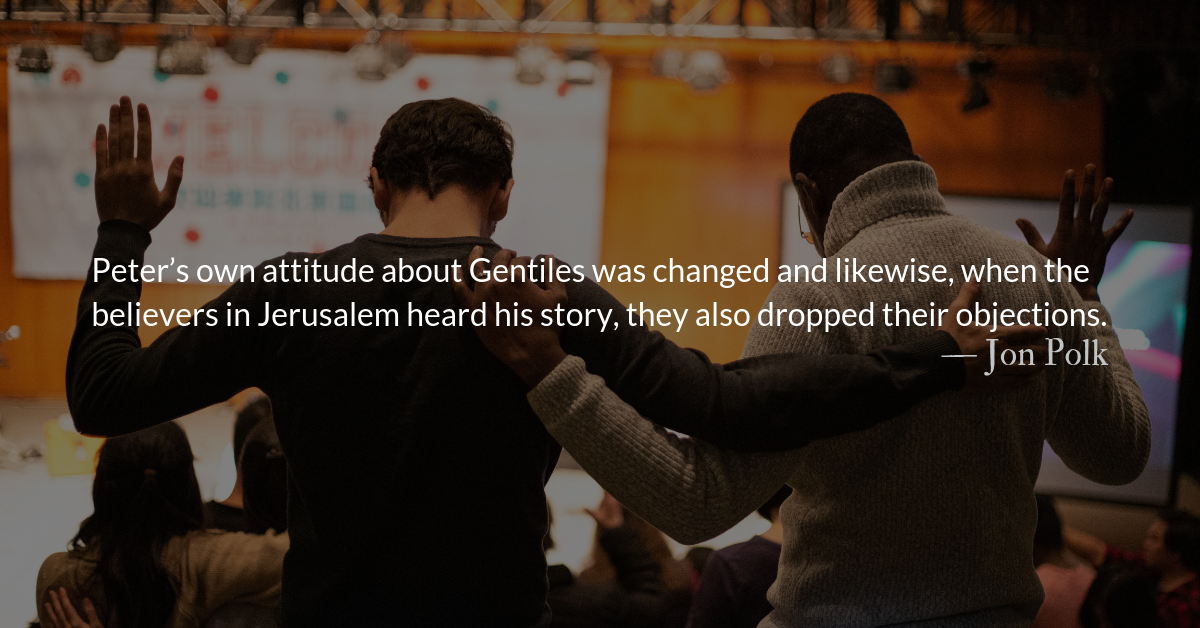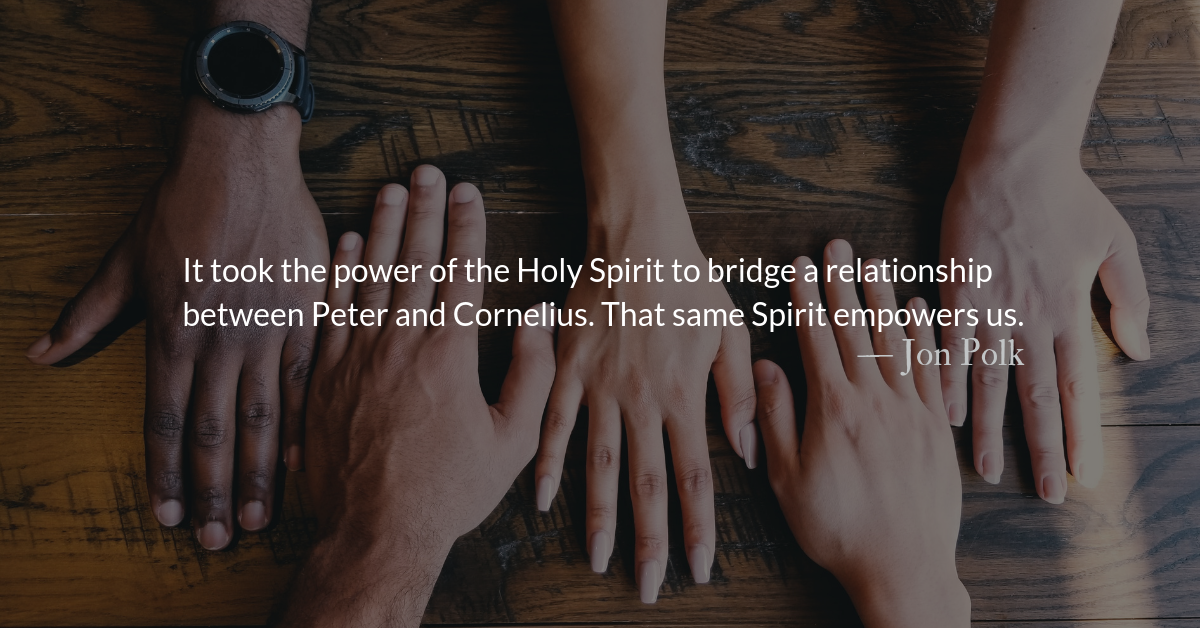Scripture Focus: Judges 6.11-13
11 The angel of the Lord came and sat down under the oak in Ophrah that belonged to Joash the Abiezrite, where his son Gideon was threshing wheat in a winepress to keep it from the Midianites. 12 When the angel of the Lord appeared to Gideon, he said, “The Lord is with you, mighty warrior.”
13 “Pardon me, my lord,” Gideon replied, “but if the Lord is with us, why has all this happened to us? Where are all his wonders that our ancestors told us about when they said, ‘Did not the Lord bring us up out of Egypt?’ But now the Lord has abandoned us and given us into the hand of Midian.”
Student Writers Month:
This month, The Park Forum welcomes college and seminary student writers pursuing ministry careers. For more info about our yearly Student Writer program, see our website.
Reflection: Details, Doubt, and Destiny
By Nigel Robinson
This opening setting of this chapter seems much like our situation across the world as followers of Christ. Those who say they love God act contrary to his words, those who do not love God profit from God’s people without visible consequence, and God seems nowhere to be found. God will answer if we humble ourselves, stop rebelling against him, and ask him for help. Have you reached the point where life hurts badly enough you are willing to let God help? God loves us so much he will let life beat us down so we choose to look up to him!
Living in a world like this is difficult. This is where we meet Gideon. His life has been ravaged to the point that he is literally hiding in a pit so his enemies cannot see him in an attempt to provide food for himself and his family. The task of threshing is harder than normal as he has no level surface, wind, or oxen to aid him. When life is tough, will God find you surrendering to your problems or doing what you can to handle them? Gideon’s creativity here provides an example of how we can respond to difficulties. God wants to find our hands working because we believe God will come through for us and we have not given up on him.
God talked to Gideon, but Gideon wasn’t quite ready to trust God. Gideon’s current circumstances brought on doubt. We face doubt because our experiences reveal life’s fragility and our limitations. However, God is not fragile nor limited. Questioning God is not wrong, but we must choose to act in accordance with what his answer reveals about us. Gideon questioned if what God said was true. But when God proved it was, Gideon responded in obedience. When was the last time you questioned what God told you? When he answered, did you act in accordance with what he said? We will never arrive at the destiny God has for us unless we believe him over our life experiences.
God uses the details of our lives to erase the doubt in our lives so we can arrive at his destiny for our lives. Gideon’s obedience allowed God to use his ordinary resources to achieve extraordinary results. What doubt is God addressing through the details of your life? Follow the details because God’s destiny is waiting.
Divine Hours Prayer: The Greeting
You are my hope, O Lord God, my confidence since I was young. — Psalm 71.5
– Divine Hours prayers from The Divine Hours: Prayers for Springtime by Phyllis Tickle
Today’s Readings
Judges 6 (Listen – 6:15)
Acts 10 (Listen – 5:49)
Today’s Readings
Judges 7 (Listen – 4:39) Acts 11 (Listen – 3:52)
Judges 8 (Listen – 5:08) Acts 12 (Listen – 3:49)
Read More about Readers’ Choice 2021
It is time to hear from you about the posts from the past eleven months (September 2020 – July 2021) that have challenged, comforted, and helped you find new meaning in the scriptures.
https://forms.gle/ozM13qvW9ouSWhJS7
Read more about God of the Weak and Doubtful
The ones who touched with their hands experienced doubt. The ones who saw with their eyes struggled to believe.










